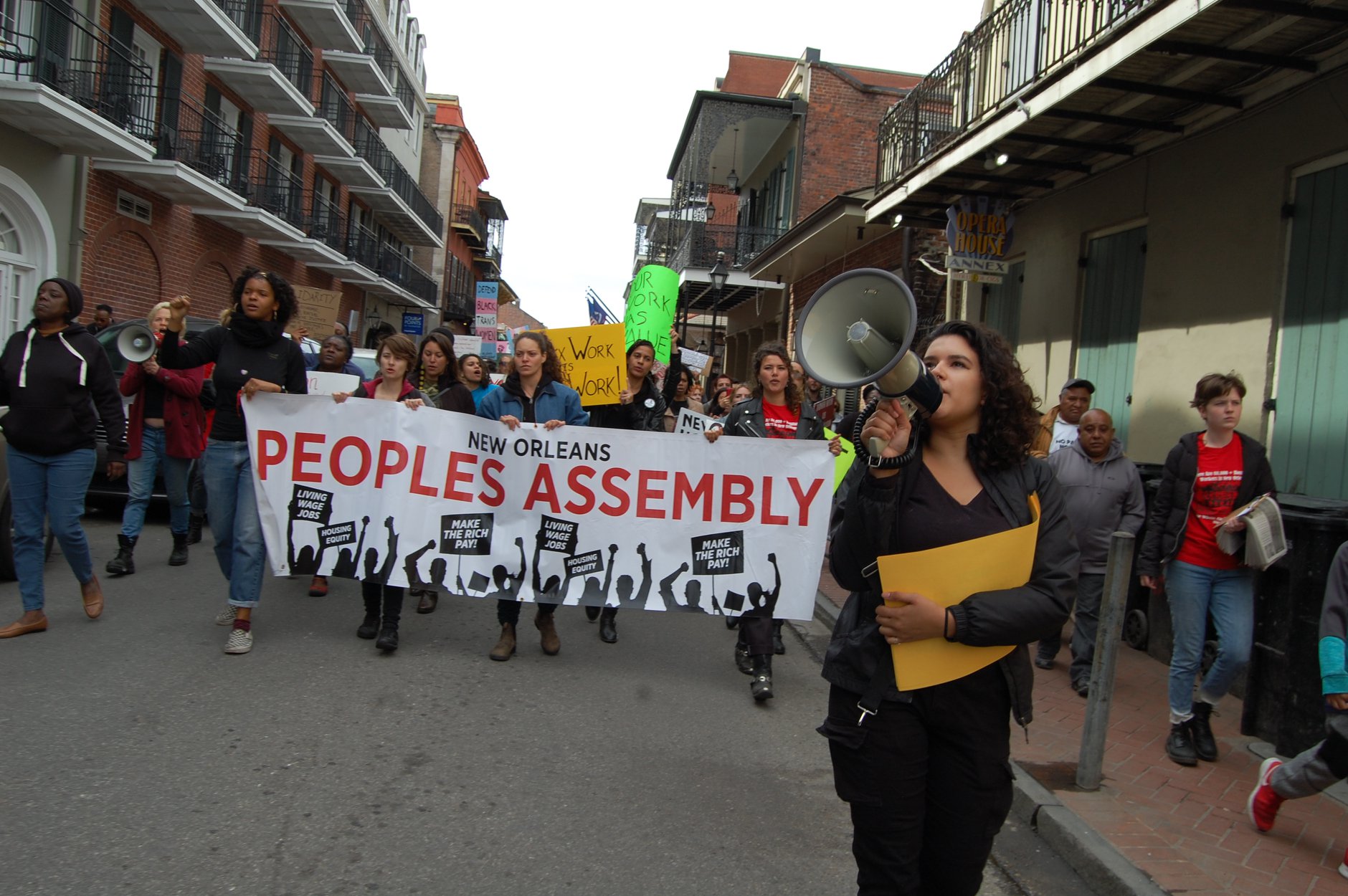By Gavrielle Gemma
All eyes are focused on the upcoming presidential election to replace Trump who represents the filthy rich capitalist class. Trump has declared war on workers, women, immigrants, people of color, LGBTQ people, the environment, social security and Medicaid, and on all the species of the planet. Trump is funneling trillions of taxpayer dollars to war profiteers, private prison companies, and militarized police, and he is best friend to every racist, ultra-right, anti-working-class dictator in the world.
The Sanders campaign has unleashed a movement that is either anti-capitalist or else critical of capitalism. That many in this movement believe in some form of socialism is a breath of fresh air in the United States. This movement challenges the attacks on social programs that have become the status quo in the U.S. for the last 50 years. Hopefully this movement will grow and continue its political development so as to stimulate a struggle. Already, the movement is more progressive than Sanders himself—especially against imperialist war.
Relying on elections alone puts the movement in a precarious position. Even if Sanders wins the nomination, it’s doubtful the capitalist backers of the Democratic Party will throw their support behind him. The capitalist system is not democratic, as it is presented to be. For example, both parties agree with the undemocratic appointing of the Supreme Court and federal judges for life.
The exploitation of workers, racism, and sexual oppression are built into this system, which will continue to ravage life in order to keep profits flowing to the capitalist class.
If the Democratic Party does not see our movement in the streets on all our issues of concern, they will at best halt the attacks but not reverse them. And Sanders himself, a long-time participant in capitalist politics, needs to feel the heat. He has already indicated he would go to war with Iran, North Korea, and support “humanitarian” (what a lie!) interventions. Notwithstanding a few slipped comments about the great things Cuba has done—which he followed up with the usual imperialist slanders—Sanders ignores the right of self-determination for the people of Venezuela and has done nothing to support Bolivian workers, peasants, and indigenous people in their fight to unseat their capitalist rulers who are violent reactionaries and puppets of the U.S. We cannot separate domestic policy from foreign policy. This error always leads to disaster.
Sanders, who does not want workers to replace the capitalist state with a state for themselves, has sown confusion around his use of the term “socialism.” Sanders is setting the stage for mass disillusionment by merely promising the rewards of “socialism” without promoting the need for workers to orient their struggle towards the total seizure of power from the capitalists.
This has been the historic role of social democrats, especially in Europe, who enjoyed great working-class support and electoral victories. But once in office, their collaboration with the capitalists reversed the course of progress. Failing to really unseat capitalism has led many European workers to turn to right wing parties.
On the other hand, the movement could turn in a revolutionary mass direction.
A movement that does not look to the path ahead will falter. A movement that stays solely in the realm of electoral politics will not win. Many say, “Well, what do you call for? After all, we propose a concrete change.” So do Revolutionary Socialists. We’re not against the Sanders movement—just the opposite: it is potentially a great development. This is especially true for the thousands of young women, women workers, and oppressed women pouring into the campaign associated with socialism.
But why not take this movement into the streets? Laws have always come after the mass movements that won labor rights, civil rights, women’s or LGBTQ advances. Even if the Democratic Party wins, it will be critically necessary to unite and hit the streets so there is enormous pressure and a visible commitment to fight for the needs of the people in solidarity with the workers and oppressed nations of the world.
When the civil rights act of 1966 was declared constitutional by the Supreme Court, there were three justices who were in the KKK, and they voted for it. How do you explain that? It was the power of the people in the streets everywhere.
Women are powerful; we are the rock in every industry in every city in every state. The work of women—paid and unpaid—moves society forward. But without organized action, that power is only potential.
Our challenge is to organize, unite and exert a power that cannot be ignored. This is what the women of Chile, Iraq, the First Nations of Canada, India, Brazil, and many more countries are showing the world under difficult circumstances. We cannot be lulled into the false belief that we can change the world by pulling a voting lever alone. We must fight to win.


